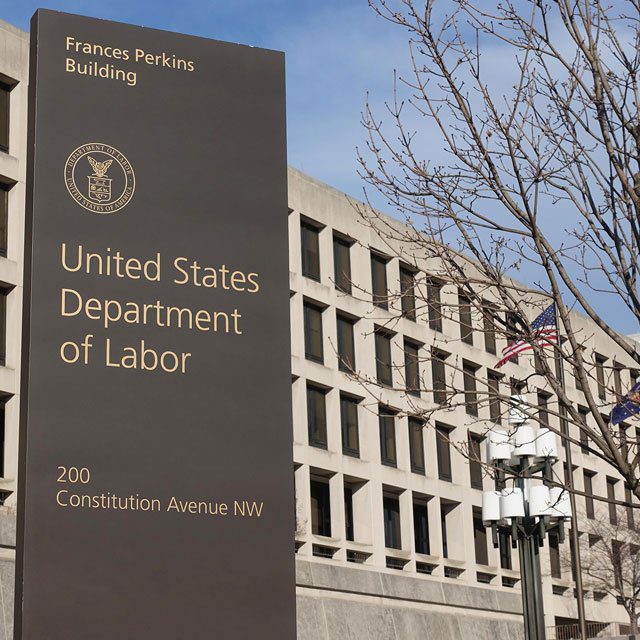New DOL Fiduciary Rule Faces Another Delay

The Federation’s case “asks the court to vacate PTE 2020-02 in its entirety and enjoin DOL from implementing or enforcing it in any manner.”
On Sept. 7, Labor asked the court to dismiss the FACC suit “for lack of standing, alleging the plaintiffs have failed to demonstrate actual injury-in-fact, especially since insurance agents are not forced to use PTE 2020-02 to receive conflicted compensation, since the long-standing PTE 84-24 which allows for insurance agent commissions is still available,” Borzi explained.
The other suit, filed Feb. 9 by the American Securities Association in the U.S. District Court for the Middle District of Florida, Tampa Division, alleges that Labor violated the Administrative Procedure Act “when it issued its FAQs on PTE 2020-02 without public notice and comment,” Borzi said.
The suit “challenges the FAQs generally, but with specific focus on FAQ 7 and FAQ 11,” Borzi pointed out.
“Both of these questions focus on the specifics of establishing a fiduciary relationship in a rollover context and the documentation needed to support the notion that a rollover recommendation is in the client’s best interest,” Borzi continued. “The complaint alleges that the FAQs are legislative in nature (which require notice and comment) rather than interpretive (which do not require that process).”
Labor “has not yet filed an answer to the complaint or a motion to dismiss, but that is expected any day now,” she added.
In the Preamble to PTE 2020-02, Campbell added, Labor “rescinded its prior interpretation (that most rollover recommendations are not ERISA fiduciary advice) and replaced it with new guidance reaching the opposite conclusion. The challenge in the litigation is to the interpretive guidance, not to the underlying rule.”
The court, Campbell continued, “could rule on the guidance even as DOL is moving separately to replace the 1975 regulation” under its new fiduciary rule.
ERISA attorney Fred Reish, partner at Faegre Drinker, adds: “It can be argued that the lawsuits are an incentive for the DOL to move forward on a new [fiduciary] regulation. If the lawsuits are successful, and the DOL’s expanded fiduciary interpretation [under PTE 2020-02] is set aside, we would revert to the old status, meaning that a rollover recommendation is not fiduciary advice. I think that would be untenable from the DOL’s perspective.”
Regarding PTE 2020-02 itself, Campbell adds, with its anticipated new fiduciary rule, Labor ”seems likely to retain the current structure in significant part, but they may add some additional conditions.”
With any new fiduciary rule, Borzi said, Labor has said “it was going to issue a new rule amending the five-part test … perhaps making some adjustments to PTE 2020-02, and reexamining some of the existing PTEs, such as 84-24. But nothing has been proposed yet.”
“I personally don’t think that either of these lawsuits are strong enough or offer enough proof on the merits to survive motions to dismiss but one never knows what a court would do, particularly that Texas court,” Borzi said.




